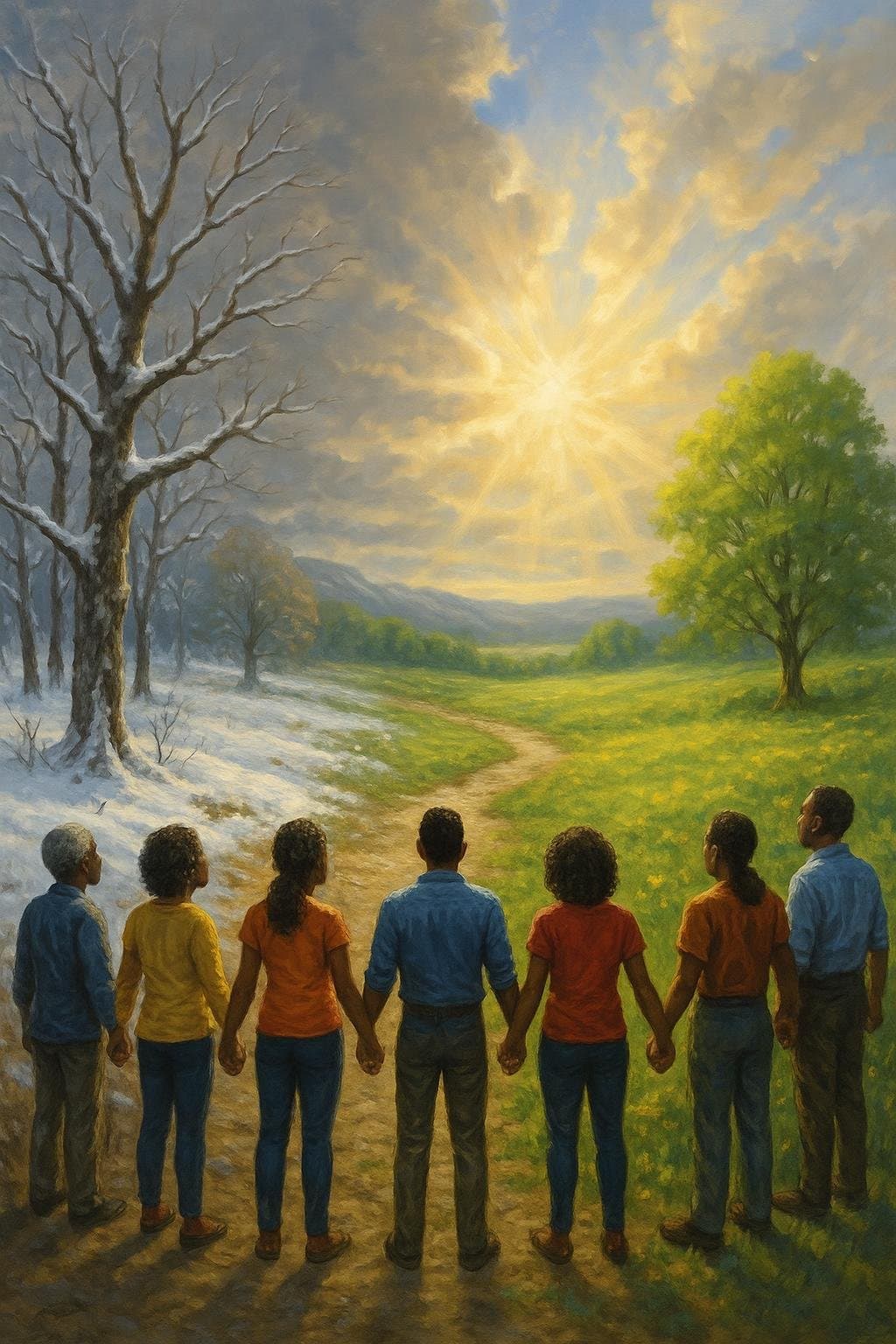Change Will Not Come If We Wait For Some Other Person Or Some Other Time. We Are The Ones We've Been Waiting For. — Barack Obama

Change will not come if we wait for some other person or some other time. We are the ones we've been waiting for. — Barack Obama
—What lingers after this line?
One-minute reflection
Why might this line matter today, not tomorrow?
Call to Personal Responsibility
Obama’s words urge individuals to assume personal responsibility in creating positive change. Rather than relying on unseen heroes or future solutions, each person is called to rise to the task themselves. This sentiment echoes Mahatma Gandhi’s mantra, 'Be the change you wish to see in the world,' emphasizing the ability of individuals to spark transformation.
Empowerment of the Collective
The quotation shifts agency from external forces to the collective 'we.' By saying 'we are the ones,' Obama rallies togetherness and shared purpose. The Civil Rights Movement exemplified this, as ordinary Americans united for justice, demonstrating that social change is possible when communities act in concert (see Taylor Branch’s *Parting the Waters*, 1988).
Urgency Against Procrastination
The statement warns against the trap of perpetual waiting—postponing action until an ideal person or moment appears. Procrastinating reform can allow injustice to persist, as Dr. Martin Luther King Jr. lamented in his 'Letter from Birmingham Jail' (1963), criticizing those who delayed civil rights on grounds that the 'right time' had not arrived.
Leadership and Initiative
Obama highlights that leadership is not the exclusive duty of prominent figures. Groundbreaking change often begins with those who may not perceive themselves as leaders. Rosa Parks’s refusal to surrender her seat in 1955 embodies this ethos—her individual act sparked a mass movement, showing leadership emerges from ordinary citizens (Douglas Brinkley's *Rosa Parks*, 2000).
Historical Context and Hope
Spoken during a period of political and economic uncertainty (2008), Obama's phrase aimed to inspire hope and activate the American public in crafting a better future. It reinvigorates the notion, rooted in American history, that progress stems from active participation rather than passive hope.